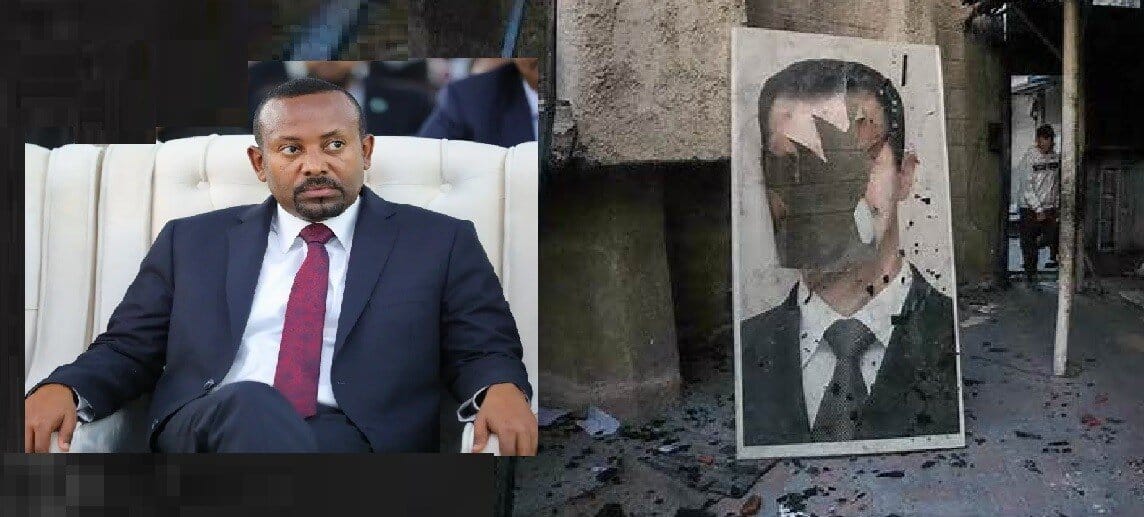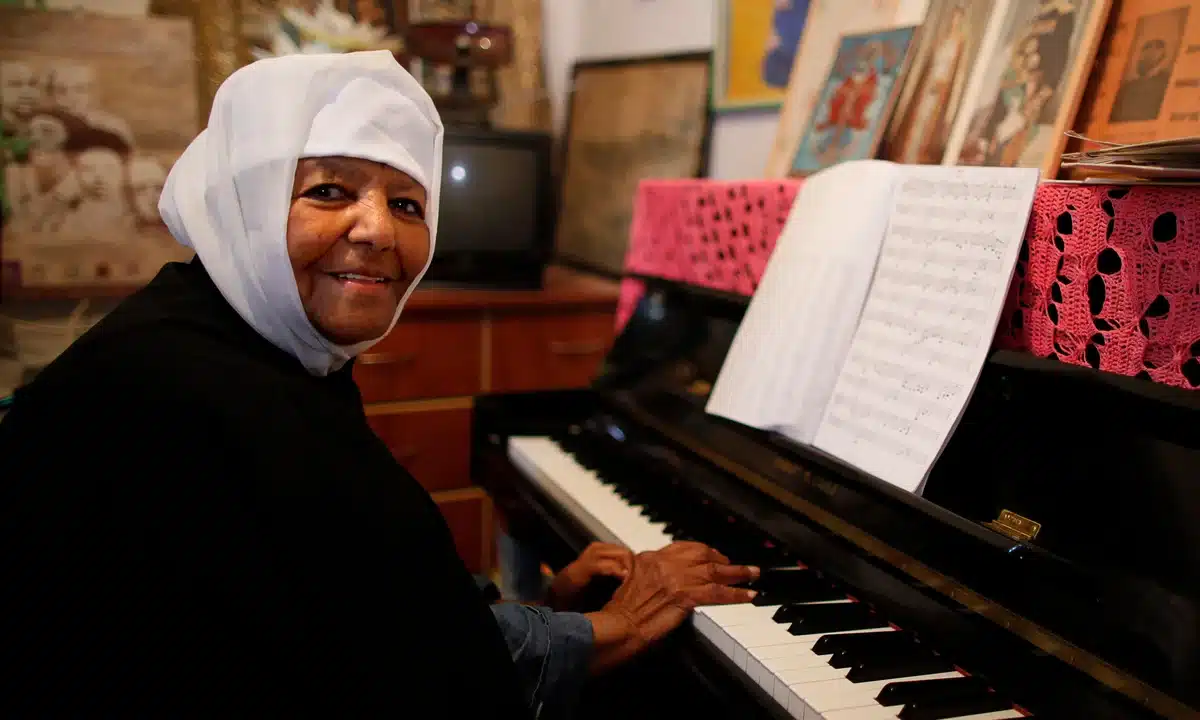By William Davison (Bloomberg) — Ethiopian authorities are engaged in a “brutal crackdown” against Muslims protesting what they say is state interference in religious affairs, Human Rights Watch said.
Since July 13, police have arrested and assaulted hundreds of Muslims at Anwar and Awalia mosques in the capital, Addis Ababa, and 17 leaders may be charged with crimes this week, the
New York-based advocacy group said in an e-mailed statement today. On Aug. 10, Muslims protests spread to regional towns in Ethiopia, including Shashemane, Harar, Jimma, and Dessie, U.S-
based Radio Bilal reported.
“The Ethiopian government should address the grievances of its Muslim community through dialogue, not violence,” Ben Rawlence, senior Africa researcher at Human Rights Watch, said
in a statement. “The security forces should be upholding the law, not breaking it.”
The government has said those arrested were involved in unrest and that the self-appointed leaders are extremists who want to create an Islamic state in multi-religious, secular Ethiopia. Around a third of Ethiopia’s 94 million people are Muslims, according to the CIA World Factbook.
Ethiopian authorities should free the Muslim leaders, Human Rights watch said. Communications Minister Bereket Simon wasn’t immediately available for comment when contacted today and a call to the mobile-phone of State Minister of Communication Shimeles Kemal
wasn’t answered.
Protesters have been campaigning for 10 months against what they say are government attempts to control the elections of Islamic leaders and to impose the moderate al-Ahbash sect of
Islam on the community via a training program. Thousands of worshipers have peacefully protested after Friday prayers at Anwar, the capital’s largest mosque, since authorities began breaking up the demonstrations.
Ethiopia Should Free Muslim Leaders After Crackdown, HRW Says
Latest from Blog

Fano: The Unsung Heroes of Ethiopia’s Fight for Freedom
What is the Fano Movement? The Fano movement represents a collective of Ethiopian fighters, largely composed of young people, farmers, and rural militias. These fighters have historically resisted both foreign invasions and

Has Human Behavior Changed Since Man Was Created or Evolved?
By Belayneh Abate The world is stunned by the horror and the indescribable crimes committed in the notorious prisons and elsewhere in Syria for more than half a century. These types

Post-Assad Syria: Navigating Hope and Uncertainty
Dahilon Yassin The Syrian uprising against Bashar al-Assad’s regime which escalated into a civil war was violently crushed by the Syrian government in 2011. 13 years later, a surprise rebel offensive reached

The Fall of Assad: How Israel, Turkey, and Iran Are Redrawing Syria’s Geopolitical Map
December 12, 2024 Caleb T (Dr.) Map Showing Regional Alliances in the Syrian Civil War before the removal of President Bashar al-Assad’s regime Other nations in the Middle East dealing with political

Ethiopia: Knowledge and Accountability Matters (Part One)
Tsegaye Tegenu, PhD 2024-12-13 These days, I’ve been engaging you with discussions on researches and data related to the challenges facing our country. The three articles provided—“Ethiopia: Rapid Population Growth, Fragile Contexts

Abiy Ahmed’s Deception and Failure in the Turkey-Mediated Ethiopia-Somalia Agreement
Dr. MeKonnen Birru (birrum@uhd.edu) The announcement of the peace agreement between Ethiopia and Somalia mediated by Turkey marks a significant diplomatic development, but it also highlights a series of contradictions and potential

Abiy Ahmed’s Drone Strikes in Wollo, Bete Amara: A Tragic Toll of Over 30 Lives
Abiy Ahmed drone attacks in Wollo, Bete Amara, have resulted in the tragic loss of over 30 lives, including that of a five-year-old child, while more than 100 individuals sustained injuries. This

Ethiopia’s Fano Rebellion: The Amhara Resistance Reshaping the Horn of Africa
By Taha Sakr DNE Africa — Ethiopia, a nation with a long history of political upheaval, is now grappling with the resurgence of the Fano rebellion—a powerful Amhara-led resistance movement with deep

Deception, Centralization, Manipulation and Betrayal: The Complex Leadership of Abiy Ahmed Ali Paperback
by Dr. MeKonnen Birru (Author) December 10, 2024 Deception, Centralization, Manipulation and Betrayal: The Complex Leadership of Abiy Ahmed Ali Abiy Ahmed, the Prime Minister of Ethiopia from 2018 to present, emerged

The Legacy of Successive Dictators: The Fall of Bashir
Mengistu Musie (Dr) mmusie2@gmail.com Abu Mohammed was the name given to a militant who fought for years against the regime in Syria. After spending significant time in battle, he returned to Damascus,

Ethiopia United: A Call to All Ethiopians by Fano
This message serves as a rallying cry for the collective unity of all Ethiopians, emphasizing the importance of solidarity in the face of challenges. Fano urges every citizen to come together, transcending

A Comparative Analysis of Abiy Ahmed and Bashar al-Assad: The Fragility of Authoritarian Leadership
Dr. MeKonnen Birru Professor @ the University of Houston (birrum@uhd.edu) Abiy Ahmed, the Prime Minister of Ethiopia, and Bashar al-Assad, the ousted President of Syria, may appear vastly different on the surface,

A Love Letter to Ethiopia, A Promise of Unity: Emahoy Tsegue Mariam and her “Souvenirs”
By Solyana Bekele Dubbing her the “Mother of Ethiopian Classical Music,”—as grand as that epithet sounds—might still be doing Emahoy Tsegue Mariam Gebru and her haunting, ephemeral, and አስተካዥ compositions a disservice.

Perspectives to Understand and Approaches in Solving Problems of Ethiopia
Tsegaye Tegenu, PhD 2024-12-09 There are tools, steps, and lenses in understanding (diagnosis) and solving (intervention findings to) the problems facing the country. The first step in unpacking the challenges is called

Abiy Ahmed’s state-controlled media has exhibited a significant lack of commentary concerning the removal of Bashar al-Assad from power.
The choice made by Ethiopian state media organizations, including Fana Broadcasting and the Ethiopian Broadcasting Corporation (EBC), to refrain from covering the ousting of Syrian President Bashar al-Assad, while simultaneously addressing other
